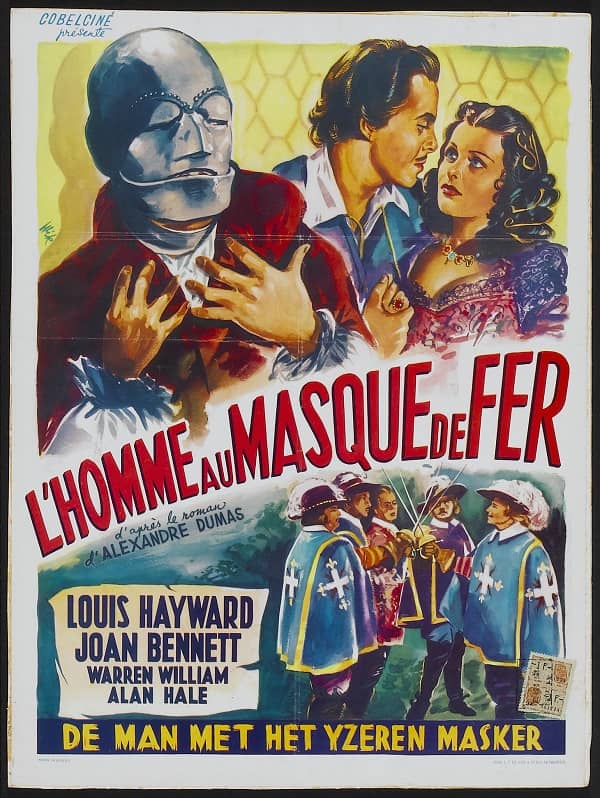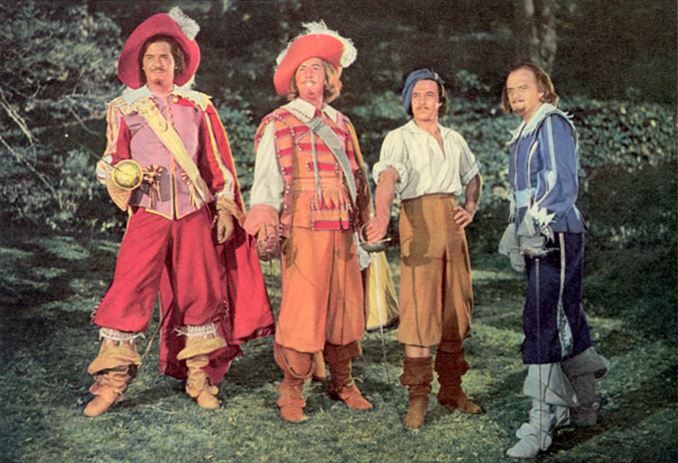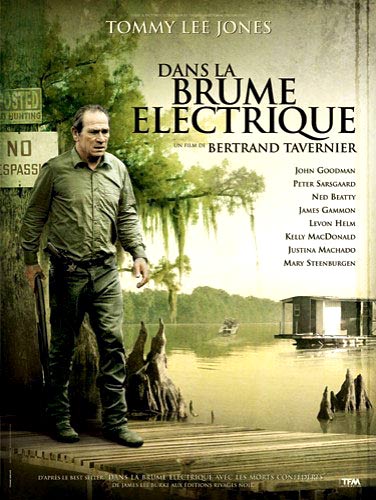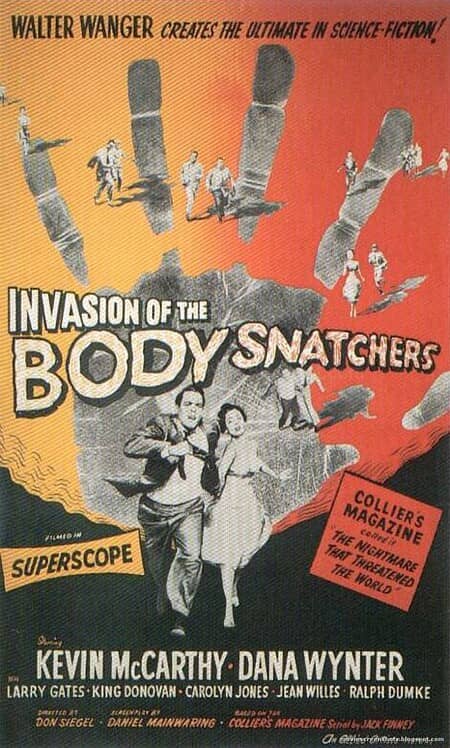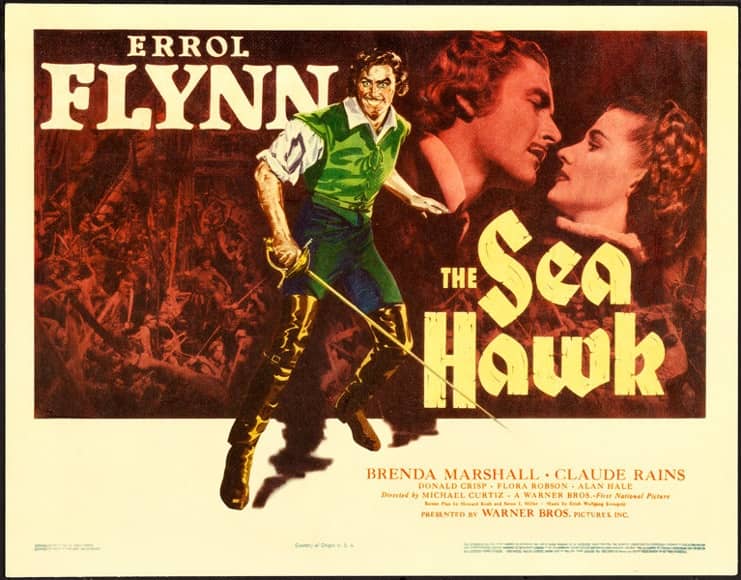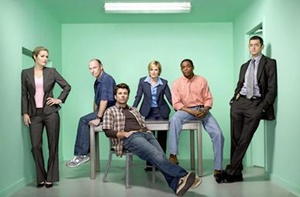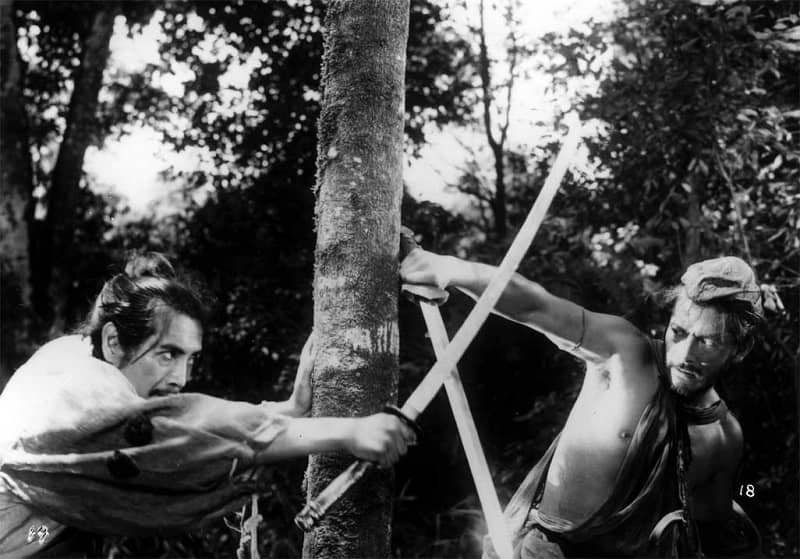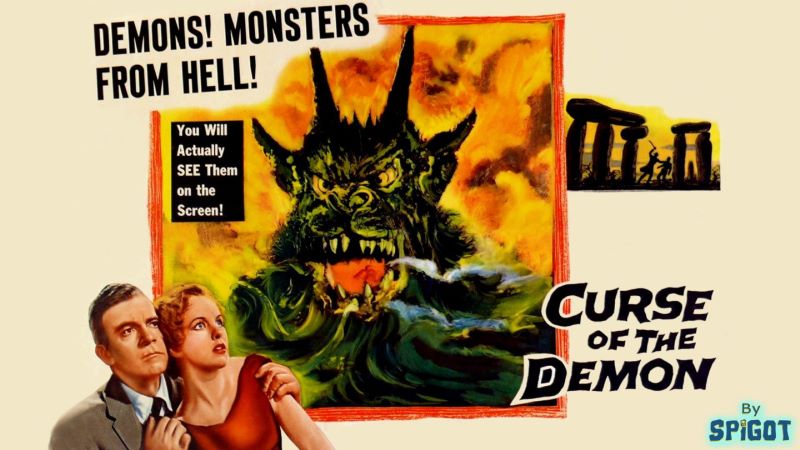Ellsworth’s Cinema of Swords: Louis Hayward, Everyman with a Sword (Part 1 of 2)
The Man in the Iron Mask (1939)
Independent Hollywood producer Edward Small had his biggest hit in 1934 with a version of The Count of Monte Cristo and was determined to follow it up with more swashbucklers. But he needed a leading man, and after several years’ delay finally found him in Louis Hayward, an actor trained on the British stage who’d come to America in the early Thirties, where he mainly played romantic leads in light comedies and the occasional prestige drama. Hayward was charming, well-spoken, looked good in period costume, and had a deft hand with sword, so Small signed him to a three-film contract. Small’s new star ending up making half a dozen swashbucklers for him and several more for other producers. Some of these are forgettable, but most of them are pretty good or better and are nowadays unfairly overlooked. Let’s start with the earliest and most successful.
The Man in the Iron Mask
Rating: ****
Origin: USA, 1939
Director: James Whale
Source: Hen’s Tooth Video DVD
This is the first sound version of Iron Mask and stars Louis Hayward in the dual role of King Louis XIV/Prince Philippe. Hayward was a leading man who appeared in a variety of parts, heroic and romantic, from the late 1930s to the early ‘50s, but if he’s remembered today, it’s as the star of eight or nine small to medium-budget swashbucklers made mainly for independent producer Edward Small (of which this is the first). The genial Hayward didn’t have the compelling screen presence of Errol Flynn or Tyrone Power, but he was likeable and determined, with enough handsome charm to carry off the romances.
